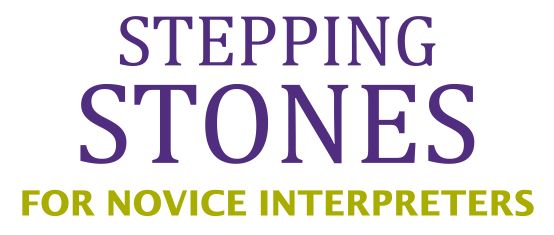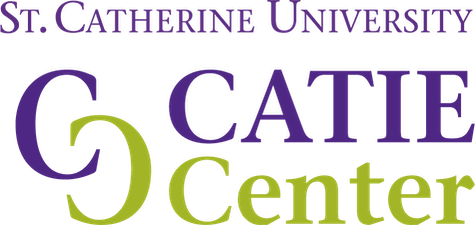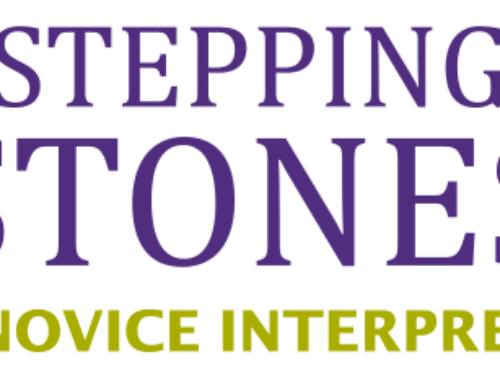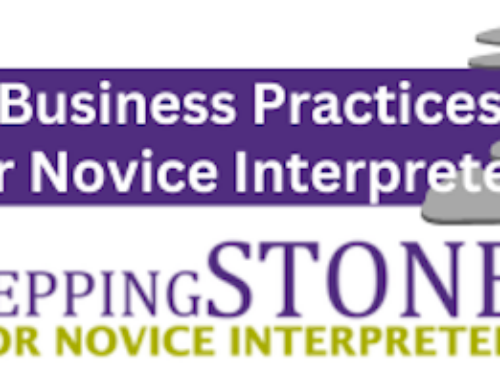
- Are you interested in connecting interpreting and the outdoors?
- Do you want to build your interpreting skills in topics related to science and the outdoors?
- Are you looking for a way to build your linguistic, cultural, and interpreting knowledge and skills and spend time in nature?
- Are you ready for a challenge that can take you off the beaten path?
Check out this free online course on interpreting in conservation corps settings. It is an offering in Stepping Stones for Novice Interpreters, a self-directed track from the CATIE Center’s Dive In project.
Interpreting Beyond Walls: Outdoors in a Conservation Corps

Description
This course was designed to introduce novice interpreters to the potential of working within a Conservation Corps setting to provide access for Deaf, DeafBlind and hard of hearing participants and to gain valuable interpreting, language, and cultural experience with people from diverse backgrounds.
The modules that make up the course include:
- Welcome & orientation
- Module 1: An Introduction to the corps experience
- Module 2: Corps experience and interpreter professional development
- Module 3: What corps do and how they talk about it
- Module 4: Roles and responsibilities of interpreters in corps settings
- Module 5: Outdoors interpreting as a profession
- Module 6: Wrap-up & additional resources
We recommend you track your progress while engaged in this course and find ways to stay accountable. Working with a peer colleague or a mentor as you go through the activities is recommended.
The course is designed to be completed over 6 weeks, at your own pace and takes at least 12 hours to complete. Each module will have a specific focus and include opportunities for application and reflection.
Learning Objectives
Participants completing this course will:
- Describe what a conservation corps program experience is
- Identify three programs that include ASL as part of the corps experience
- List at least 5 ways that a corps experience can benefit a novice interpreter’s professional development
- Describe common activities in a conservation corps setting
- Explain tools and safety practices related to corps activities
- Identify challenges that Crew Leader/Interpreters face in the field
- Describe the way interpreters manage a dual-role in a conservation corps setting
- Describe the importance of interpreting for deaf/DeafBlind people considering careers in the outdoors
- Identify the challenges for business practices for outdoor interpreting
A Note on CEUs
Because our grant is focused on novice interpreters working toward certification, CEUs are not offered by the CATIE Center. The CATIE Center has an agreement with the Minnesota Registry of Interpreters for the Deaf.
For $40 (a cost set by MRID), you can receive ACET or CMP CEUs for this course. At the end of the course, you will have access to a form to apply for CEUs and receive a link for making the payment. So, you don’t have to commit to making a payment until you know that you will be able to complete the requirements. (MRID members receive a free processing of a Stepping Stones workshop, a PINRA, or an Independent Study each year – so if you are an MRID member, you can get this cost waived.) For more information on the CEU process, contact pdc@mrid.org.
Minnesota Registry of Interpreters for the Deaf is an approved RID Certification Maintenance Program (CMP) sponsor for continuing education activities. This professional studies program is offered for up to 1.2 CEUs at the little/none content knowledge level.
The CATIE Center promotes a mutually respectful learning environment free of bias. See St. Catherine University’s non-discrimination policy for more details.
Extended registration is available. Facilitation will end February 15, 2026.
The registration form will provide you a link to enroll in a free Canvas course. It will also ask for optional demographic information which will be helpful for the CATIE Center in evaluating the effectiveness of these resources for supporting the diversity of novice interpreters who are entering the interpreting field.
Learn about ongoing access to Stepping Stones courses
About Stepping Stones for Novice Interpreters
This course is part of a series developed by the Dive In project of the CATIE Center at St. Catherine University. Each module will have a facilitator from the CATIE Center who monitors a Support Forum. The activities are designed so that you can do them asynchronously. Though possible to do independently, we encourage you to either join as a group and work through the material together – or use the introduction forum to seek out others in the course who might work with you in the discussions. Collaborative learning can be a really important tool in professional development.


